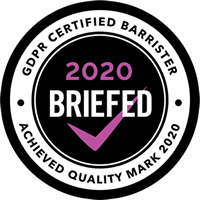
THE UNCITRAL MODEL LAW AND THE CROSS-BORDER INSOLVENCY REGULATIONS 2006: A NEED FOR INSOLVENCY OR SEVERE FINANCIAL DISTRESS
28th January 2020
In Re Sturgeon Central Asia Balanced Fund Ltd [2020] EWHC 123 (Ch), Chief ICC Judge Briggs, sitting as a deputy judge of the High Court, terminated an order recognising the winding-up of a solvent company in Bermuda under the UNCITRAL Model Law on Cross-Border Insolvency, as implemented by the Cross-Border Insolvency Regulations 2006 (CBIR).
The judgment clarifies that the Model Law and the Cross-Border Insolvency Regulations 2006 apply only to companies which are insolvent or in severe financial distress.
Background
Following a shareholder dispute, one of the shareholders of Sturgeon Central Asia Balanced Fund Ltd presented a petition for its winding-up on just and equitable grounds under Section 161(g) of the Bermuda Companies Act 1981.
With very limited exception, it is a requirement for such a petition that the shareholder has a “tangible interest” in its winding-up, i.e. that the company is solvent such that its members will receive a return in liquidation: Re Rica Gold Washing Co (1879) 11 Ch D 36. The shareholder pleaded that the company was solvent and, indeed, following its winding-up, the statement of affairs confirmed that it had assets of just under US$ 39 million.
The joint provisional liquidators who were appointed by the Supreme Court of Bermuda subsequently sought recognition of the winding-up proceedings as a ‘foreign main proceeding’ in England under the Cross-Border Insolvency Regulations 2006. The CBIR implement the UNCITRAL Model Law on Cross-Border Insolvency, adopted in 1997, in Great Britain. Subject to certain requirements being met, they permit the cross-border recognition of proceedings in foreign jurisdictions. Upon recognition, foreign liquidators enjoy the same powers they would if they had been appointed in this jurisdiction – including investigatory powers under Section 236 of the Insolvency Act 1986.
The Recognition Order: no need for insolvency
The JPLs’ application for recognition of the Bermuda winding-up first came before ICC Judge Burton who considered that the matter should be considered by a High Court judge because it gave rise to an important point of law.
The application was then heard by Falk J without notice to any other party. In her judgment of 17 May 2019, she acknowledged that the question of whether a winding-up of a solvent company, pursuant to a contributory’s winding-up petition on just and equitable grounds, could be recognised under the Model Law is “simply stated but rather less simply answered”.
Falk J had regard to the preparatory work of the UNCITRAL Working Group V (Insolvency Law) between 1995 and 1997, as well as the original Guide to Enactment of the UNCITRAL Model Law published in 1997 and a revised version of that Guide adopted by UNCITRAL in 2013. She also considered a number of authorities from jurisdictions in which the Model Law had been adopted – In Re Betcorp (2009) 400 BR 266 (pursuant to the Chapter 15 of the United States Bankruptcy Code) and Re Chow Cho Poon (Private) Limited [2011] NSWSC 300 (Australia) – as well as the decisions of the English High Court and Court of Appeal in In Re Stanford International Bank Ltd ([2009] BPIR 1157 and [2011] Ch 33) and In re Agrokor dd ([2018] Bus LR 64).
Explaining that there was nothing in the Model Law which appeared to limit its application to companies that are insolvent or in severe financial distress, Falk J acceded to the JPLs’ request and made an order recognising the solvent winding-up in Bermuda as a ‘foreign main proceeding’ and the JPLs as ‘foreign representatives’.
The Termination Order: no recognition where a company is solvent
Michael Carter, a former director of the company, applied for an order pursuant to Article 17(4) of the Model Law that the Recognition Order be terminated on the basis that the winding-up proceeding in Bermuda could not be a ‘foreign proceeding’ for the purposes of the Model Law because it was not “a collective judicial or administrative proceeding in a foreign State […] pursuant to a law relating to insolvency in which proceeding the assets and affairs of the debtor are subject to control or supervision by a foreign court, for the purpose of reorganisation or liquidation”.
The application was a ‘review application’ and Chief ICC Judge Briggs held that such an application is “it is similar to, if not the same as, the return date of an ex parte application for an injunction, albeit that there are procedural differences (an application must be made for the review application)” (at [47]).
The judge held that Mr Carter had standing to make the application because he was a “person affected by recognition” as required by Article 17(4) of Schedule 1 to the CBIR. It was not necessary for Mr Carter to have any economic interest in the company or its winding-up because he was affected by the consequences of recognition under the CBIR, including the power to interview and seek documents from directors pursuant to Section 236 of the Insolvency Act 1986: [48] – [56]. Alternatively, the judge was satisfied that it was appropriate for the Court to review the Recognition Order of its own motion to prevent turning “a blind eye to a serious challenge to jurisdiction”.
On the question of law, Mr Carter relied on the purposes of the Model Law – as noted in its Preamble, these include the promotion of cooperation between the courts in cases of cross-border insolvency and the facilitation of the rescue of financially troubled businesses. He also pointed to the revised Guide to Enactment and Interpretation of the Model Law, adopted by UNCITRAL on 18 July 2013 and published in 2014, which provides that the term ‘insolvent’ in the Model Law refers to proceedings relating to debtors that are in “severe financial distress or insolvent”.
Chief ICC Judge Briggs agreed and held that the Model Law and the CBIR do not apply to proceedings where the company is solvent. In this respect, he held that a “wrong turn” had been taken in the American decision of In re Betcorp and that the correct question to ask was ”whether the company was insolvent or in severe financial distress” (at [121]). In respect of other case law, he noted that that In Re Stanford International Bank and Re Agrokor dd had both related to insolvent companies and that the Australian judge in Re Chow Cho Poon had not decided the matter before him on the basis of the domestic implementation of the Model Law.
In reaching his conclusion, Chief ICC Judge Briggs referred to the need to give purposive effect to the CBIR and rejected the idea that the Court could not have regard to revised UNCITRAL guidance adopted after the CBIR. This was particularly the case in light of the permissive wording of Regulation 2(2) of the CBIR which does not limit the materials to which the Court may consider in respect of the Model Law.
Conclusion
The effect of the termination of the Recognition Order in Re Sturgeon Central Asia Balanced Fund Ltd is that cross-border recognition will not be available under the CBIR where a company is demonstrably solvent and wound-up on just and equitable grounds on the petition of a shareholder. For the same reasons, it is unlikely that a solvent liquidation, such as a members’ voluntary liquidation, would be recognised in England and Wales.
The CBIR and the Model Law are distinct from the EU Insolvency Regulation (2015/848), which governs insolvency proceedings within the European Union and provides a mandatory jurisdiction in which those proceedings must be opened. Article 64(3)(c) of the Withdrawal Agreement provides that the EU Regulation will apply to insolvency proceedings opened after Brexit and before the end of the transition period – currently expected to be 31 December 2020. However, unless an equivalent regime is then implemented, it can be expected that EU officeholders will have greater recourse to the CBIR and the Model Law following the UK’s departure from the European Union.
James Potts QC and Conor McLaughlin were instructed by Pinsent Masons LLP on behalf of the Applicant.



